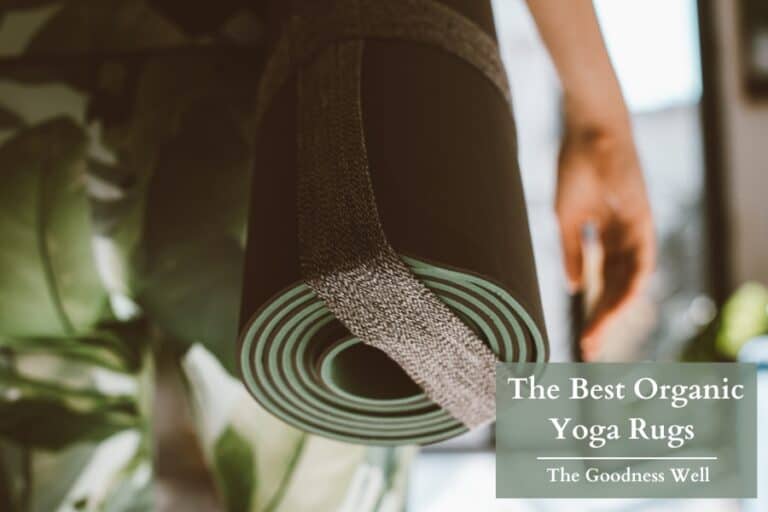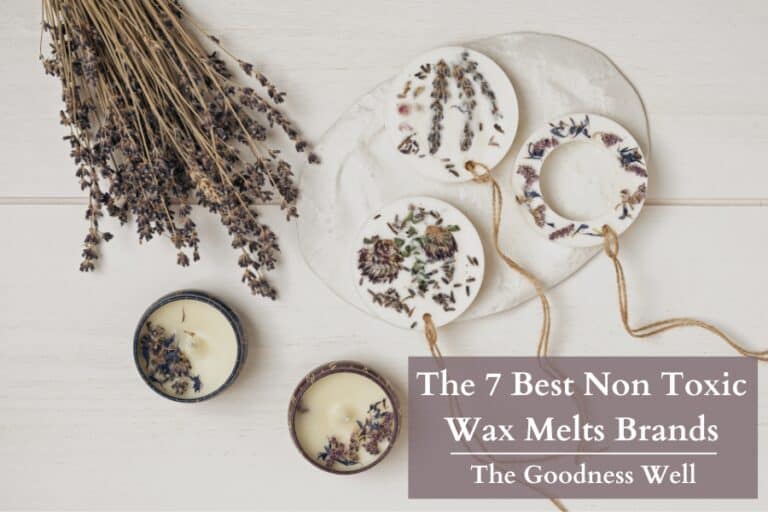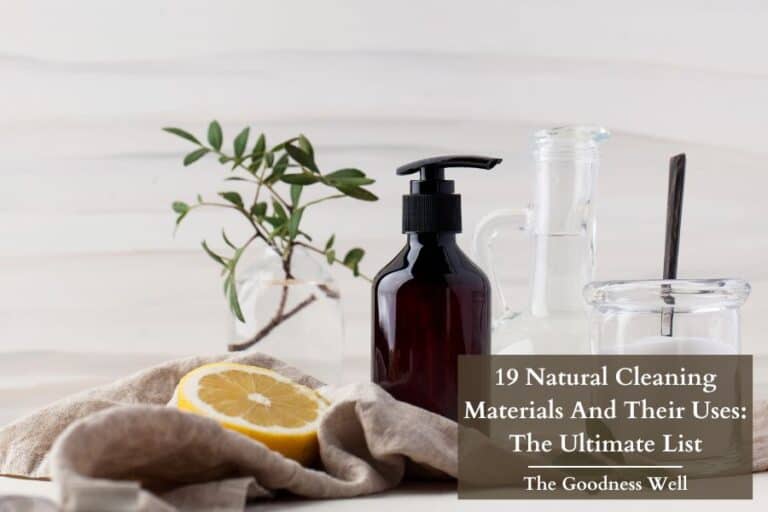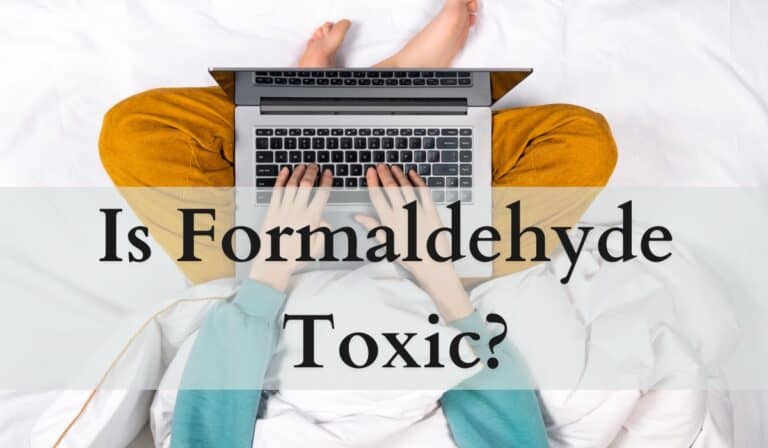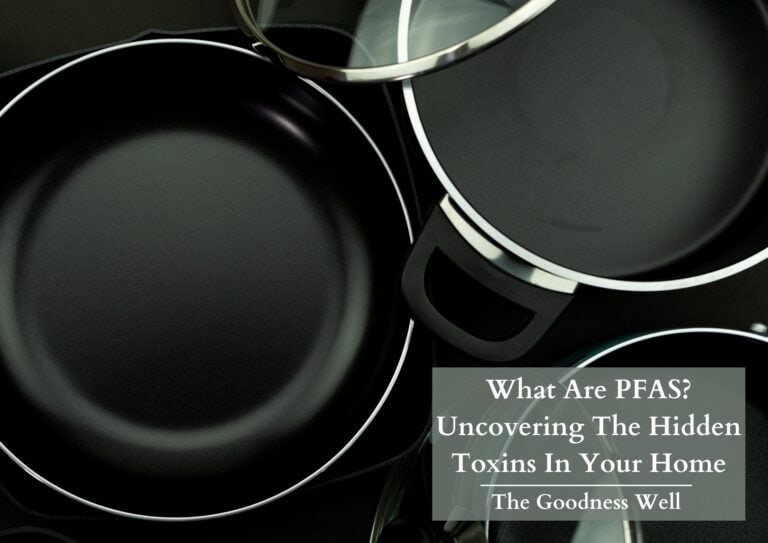Are Polyester Pillows Safe? + 4 Non-Toxic Alternatives
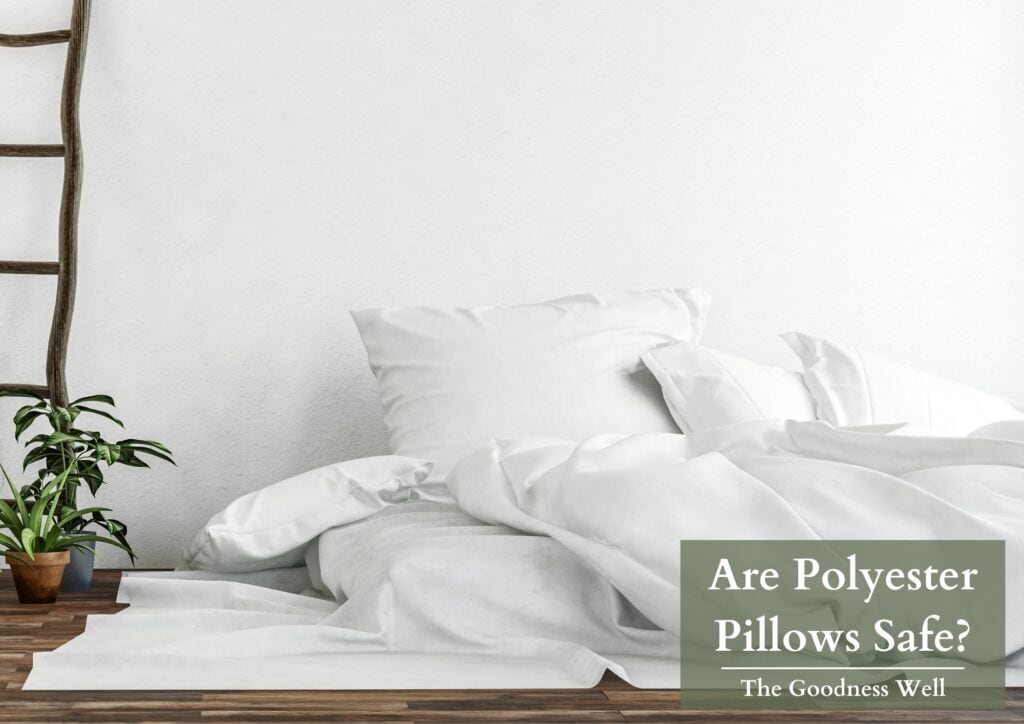
Polyester pillows have been in our homes for decades, but are polyester pillows safe?
If you’re like us, you want your home to be as non-toxic as possible, and sleeping on toxic materials is a no-go.
But there’s a lot of misinformation out there, so how can you know what’s right?
Don’t worry, we got you covered. So, let’s get right into it.
TL;DR
Are Polyester Pillows Safe?
No. Polyester pillows, made from synthetic materials, have the potential to off-gas harmful substances like microplastics and VOCs, which we can breathe in. It is also toxic to the environment due to its non-biodegradable nature. We recommend choosing non-toxic options like organic cotton, wool, latex, and buckwheat pillows.
Polyester Filling in Pillows
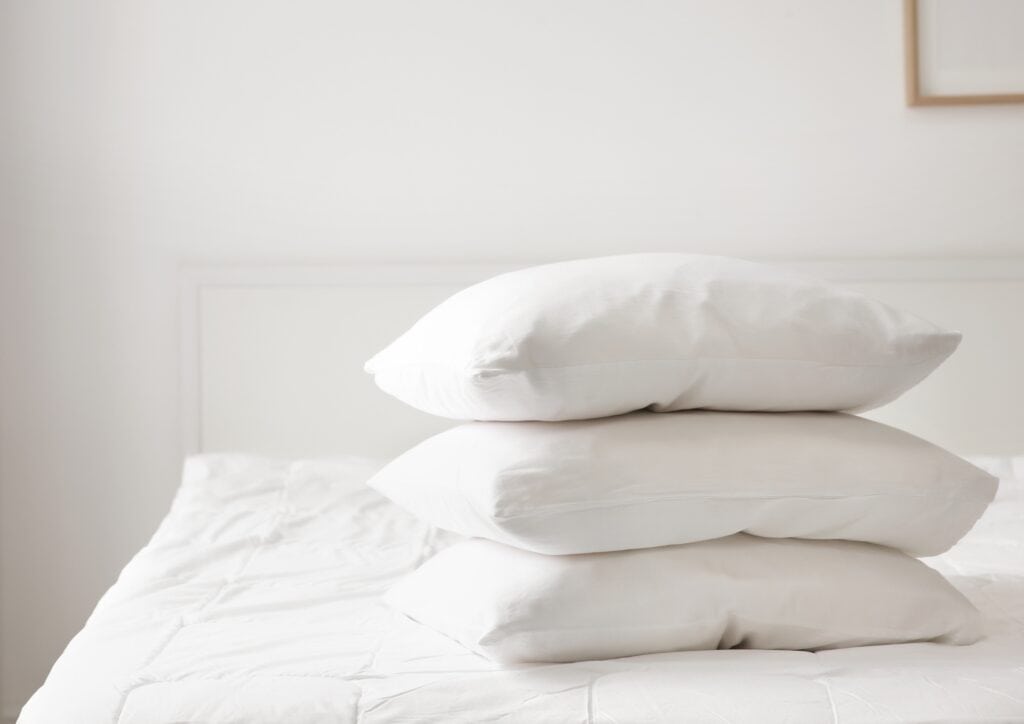
Polyester filling is a synthetic plastic made from petroleum products; it’s a popular choice for pillows due to its resilience and cost-effectiveness.
Most polyester pillows are actually pretty comfortable!
And pillows aren’t the only thing polyester filling is used in. It’s actually the main material used for items with “stuffing”, such as:
- Comforters
- Furniture & Cushions
- Sleeping bags
- Jackets & coats
- Toys
- Car seats
- Sportswear padding
But compared to more natural fillings, they’re not as breathable, can become lumpy over time, and have a pretty big environmental footprint.
and that’s not all…
Health Concerns of Polyester Filling
Chemicals In Your Pillows
Since polyester is a synthetic material, its production involves various chemicals, which can result in leftover chemicals in the final product like:
- Volatile Organic Compounds (VOCs): Like formaldehyde, toluene, and benzene.
- Flame Retardants: Reduces flammability but linked to endocrine disruption and neurodevelopmental issues.
- Antimony: Associated with skin irritation and other health risks with prolonged exposure.
Now the level of these chemicals in polyester pillow fillings can vary widely due to different manufacturing processes but most of them are pretty low, if any. And after a good wash, the overall health risk of them isn’t anything to be worried about.
However, paired with the uncertainty of these chemicals, there is another main reason we recommend avoiding polyester pillows, and that’s microplastics.
Microplastics in Your Pillows
This might be a surprise, but polyester is actually a plastic, and over time it releases tiny microplastics. These tiny fragments detach from polyester fabrics through regular use, wear and tear, and washing.
The health risks of microplastics are a growing area of study but current research indicates the following health risks:
- Respiratory Deposits: Microplastics deposit in the respiratory tract.
- Oxidative Damage: These particles cause oxidative stress, leading to lung inflammation and tissue harm.
- Bloodstream Translocation: Smaller microplastics can enter the bloodstream, inducing cellular toxicity.
- Inflammation and Cancer Risk: Persistent respiratory irritation from microplastics might increase the risk of cancer development.
And these microplastics aren’t only toxic to us, but especially to animals and the environment.
So, what are some better alternatives?
Choosing Healthier Alternatives

There’s no need to settle for polyester pillows because there are many other non-toxic options out there, including:
- Organic Cotton: Free from pesticides and chemicals.
- Wool: Naturally hypoallergenic and resistant to dust mites.
- Latex: Derived from the rubber tree, it’s biodegradable and resistant to mold and dust mites.
- Buckwheat: A natural and organic option that’s both breathable and supportive.
Also, look for pillows with the following certifications:


CertiPUR-US or OEKO-TEX Standard 100 certifications indicate that products, specifically polyurethane foams and textiles, meet safety standards for toxic chemicals and environmental safety.

Final thoughts
Polyester pillows just have too many negative effects on us and our environment to continue using them. If you can afford it, make the switch to pillows made of natural materials.
Trust me, you’ll sleep better knowing you’ve made a healthier choice.
Pillowcase closed.

